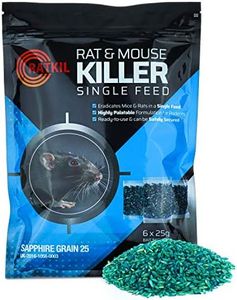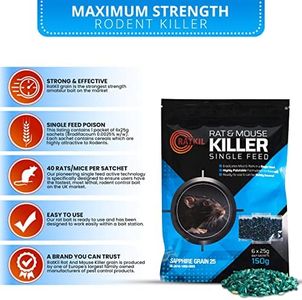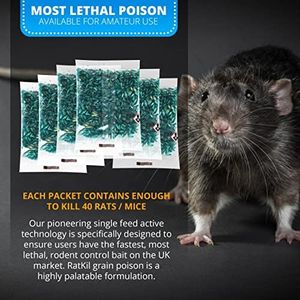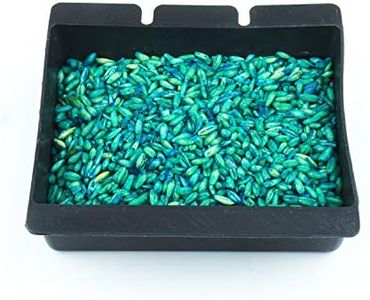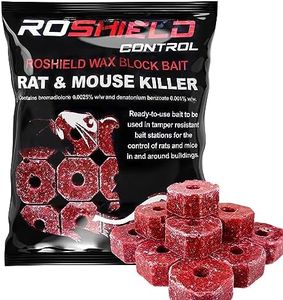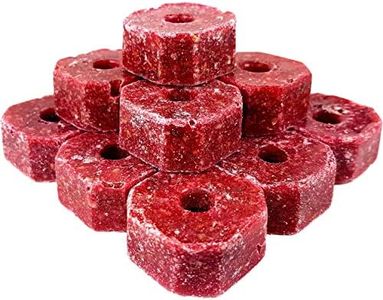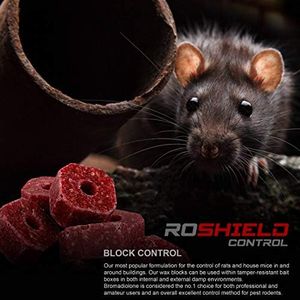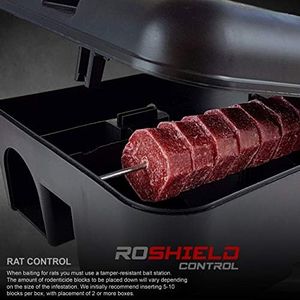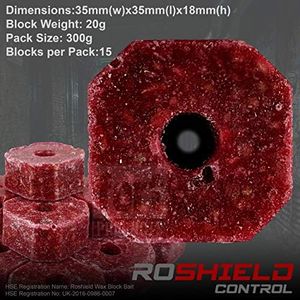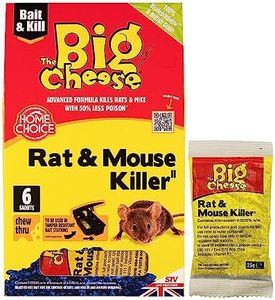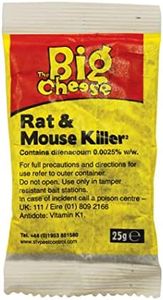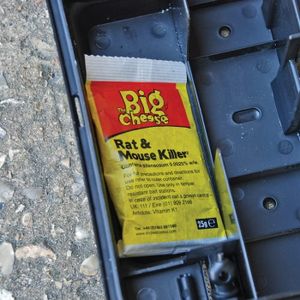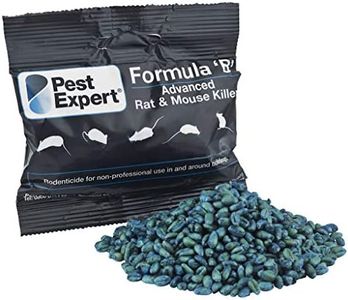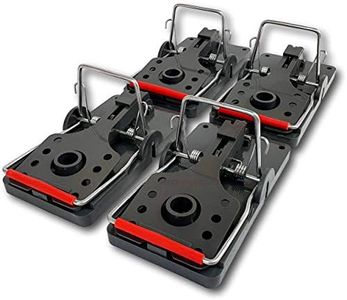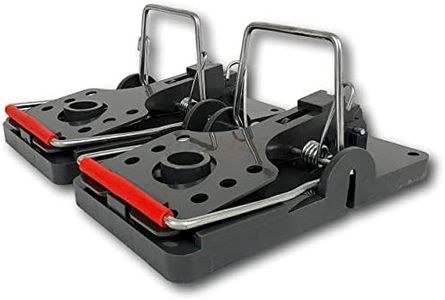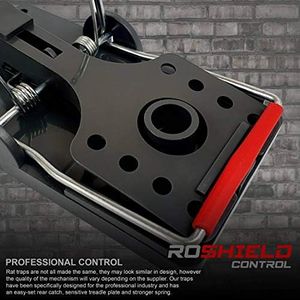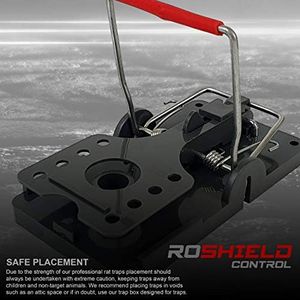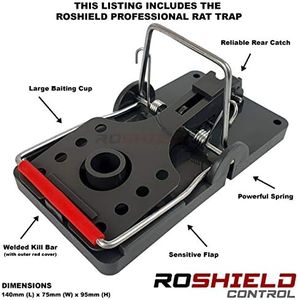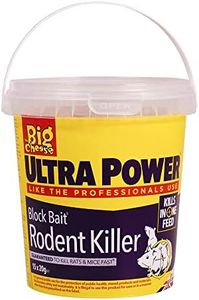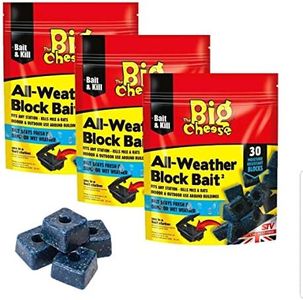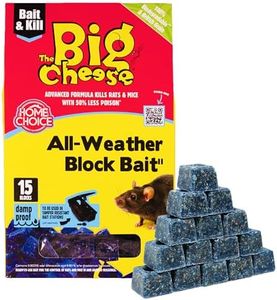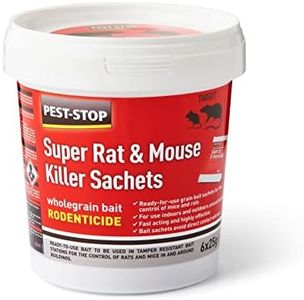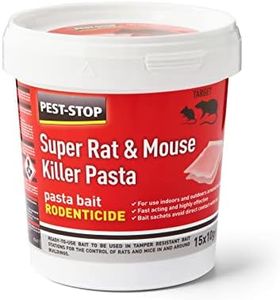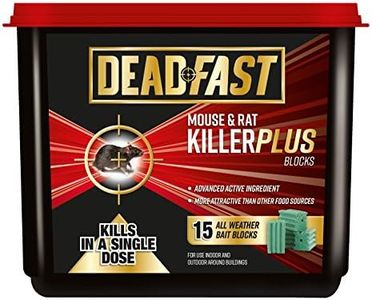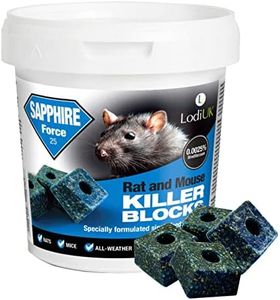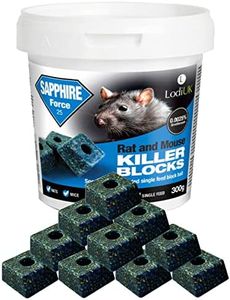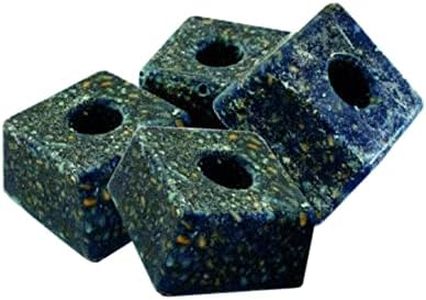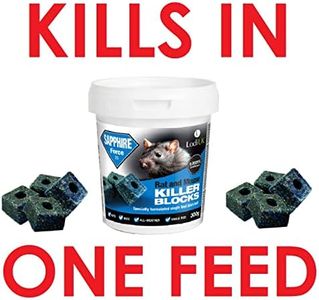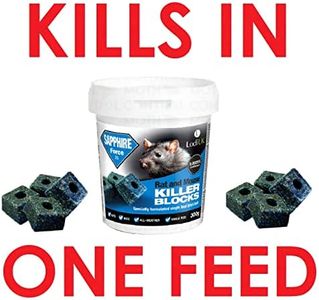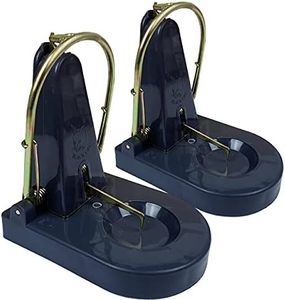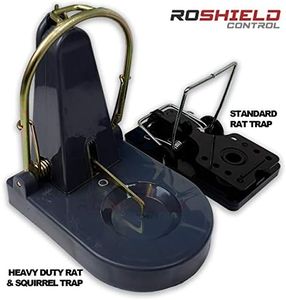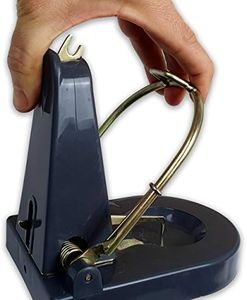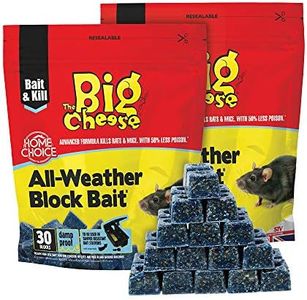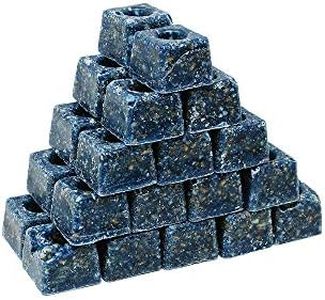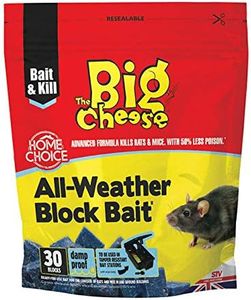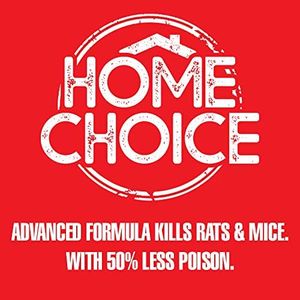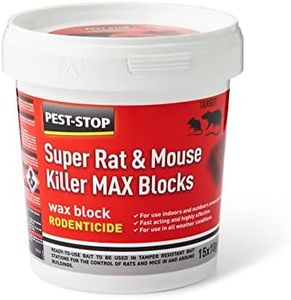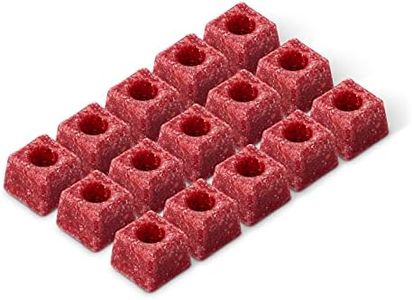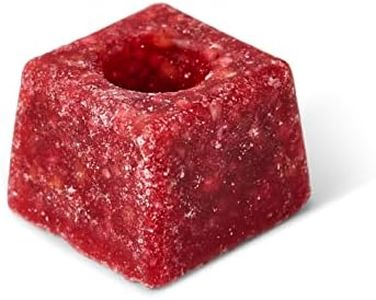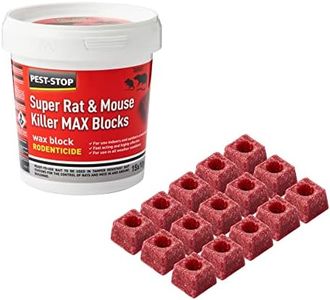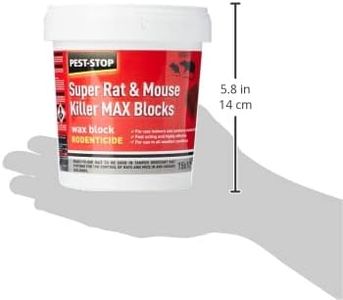We Use CookiesWe use cookies to enhance the security, performance,
functionality and for analytical and promotional activities. By continuing to browse this site you
are agreeing to our privacy policy
10 Best Rat Killers
From leading brands and best sellers available on the web.Top 10 Best Rat Killers 2025 in the UK
#1
Winner
RatKil Rat Poison (6 x25g) Rat Bait & Mouse Poison Grain - Strongest Maximum Strength Rodent Killer - Fast Acting, All Weather, Single Feed Bait Sachets
RatKil Rat Poison (6 x25g) Rat Bait & Mouse Poison Grain - Strongest Maximum Strength Rodent Killer - Fast Acting, All Weather, Single Feed Bait Sachets
Type of Rat Killer: strongest bait
Effectiveness: fast-acting, single-feed
Ease of Use: ready to use
Chosen by 1289 this week
ROSHIELD- Rat/Mouse Poisoning,Poison Blocks 300g, Super Strength, Single-Feed Fast Acting Rat & Mouse Killer, Rat Poison Block Bait - Indoor,Outdoor For Rodent Bait Station Refill Packs…
ROSHIELD- Rat/Mouse Poisoning,Poison Blocks 300g, Super Strength, Single-Feed Fast Acting Rat & Mouse Killer, Rat Poison Block Bait - Indoor,Outdoor For Rodent Bait Station Refill Packs…
Type of Rat Killer: Poison Block
Safety: Contains denatonium benzoate
Effectiveness: Single-feed use
Ease of Use: Ready for bait stations
Environmental Impact: Minimizes poison, caution for others
The Big Cheese Rat & Mouse Killer Grain Bait Sachet - 25g x 6 Kills Mice Pre-Measured Chew Through Sachet Difenacoum, Blue
The Big Cheese Rat & Mouse Killer Grain Bait Sachet - 25g x 6 Kills Mice Pre-Measured Chew Through Sachet Difenacoum, Blue
Type of Rat Killer: Grain Bait
Safety: Requires bait station
Effectiveness: Kills rats and mice
Ease of Use: Pre-measured sachets
Environmental Impact: Risk to wildlife
Pest Expert Formula ‘B+’ Advanced Rat & Mouse Killer Poison 900g (15 x 60g) Strongest Single Feed Brodifacoum, Fast Acting Poisoning Control
Pest Expert Formula ‘B+’ Advanced Rat & Mouse Killer Poison 900g (15 x 60g) Strongest Single Feed Brodifacoum, Fast Acting Poisoning Control
Type of Rat Killer: Brodifacoum-based rodent poison
Safety: Hazardous to pets and children
Effectiveness: Kills rats and mice quickly
Ease of Use: 15 sachets for precise use
Environmental Impact: Persistent; harms non-target wildlife
ROSHIELD 4 x Rat Traps - Professional Quality & Heavy Duty Pest Control Traps for Instant Kill - Large Reusable & Easy Set Rodent Solution
ROSHIELD 4 x Rat Traps - Professional Quality & Heavy Duty Pest Control Traps for Instant Kill - Large Reusable & Easy Set Rodent Solution
Type of Rat Killer: mechanical, reusable spring trap
Safety: safe for children, no chemicals
Effectiveness: large trigger, quick kill
Ease of Use: easy setup, clear instructions
Environmental Impact: eco-friendly, no chemicals
ROSHIELD 2x Nano Heavy Duty Rat Control Trap - Powerful Instant Killer Rodent Trap Solution for Treatment of Rats within Buildings
ROSHIELD 2x Nano Heavy Duty Rat Control Trap - Powerful Instant Killer Rodent Trap Solution for Treatment of Rats within Buildings
Type of Rat Killer: Mechanical trap
Safety: Use cautiously; keep away from children
Effectiveness: Activates after bait lifted; reduces false triggers
Ease of Use: Compact; clear instructions; online video support
Environmental Impact: Reusable; no chemicals; reduces contamination
#10
Recommended lists
Buying Guide for the Best Rat Killers
Choosing the right rat killer is crucial for effectively managing a rodent problem while ensuring safety for humans and pets. The key is to understand the different types of rat killers available and how they work, as well as considering the environment in which they will be used. It's important to balance effectiveness with safety and environmental impact. Always follow the manufacturer's instructions and local regulations when using any pest control product.Type of Rat KillerRat killers come in various forms, including traps, poisons, and electronic devices. Traps can be humane or lethal, and are often used when you want to avoid using chemicals. Poisons, or rodenticides, are effective but can pose risks to pets and children if not used carefully. Electronic devices use ultrasonic sound waves to repel rats and are a non-lethal option. Choose based on your specific needs: if you have pets or children, traps or electronic devices might be safer; if you need to cover a large area, poisons might be more effective.
SafetySafety is a critical consideration when choosing a rat killer, especially if you have pets or children. Traps should be placed in areas inaccessible to non-target animals and people. Poisons should be used with extreme caution, ideally in bait stations that prevent accidental ingestion. Electronic devices are generally safe but may not be suitable for homes with certain pets like rodents. Consider your household's safety needs and choose a product that minimizes risk while effectively controlling the rat population.
EffectivenessThe effectiveness of a rat killer depends on the severity of the infestation and the environment. Traps can be very effective for small infestations or when you can identify rat pathways. Poisons are often used for larger infestations but require careful placement and monitoring. Electronic devices may take longer to show results and are best for prevention or minor issues. Assess the level of infestation and choose a method that matches the scale of your problem.
Ease of UseEase of use is important for ensuring that the rat killer is deployed correctly and consistently. Traps can be straightforward but require regular checking and resetting. Poisons need careful handling and placement, and you must monitor for dead rodents. Electronic devices are typically easy to set up and require minimal maintenance. Consider how much time and effort you can dedicate to managing the rat problem and choose a product that fits your lifestyle.
Environmental ImpactThe environmental impact of rat killers varies. Poisons can harm non-target wildlife and contaminate the environment if not used responsibly. Traps have a lower environmental impact but can still affect non-target species if not used carefully. Electronic devices have minimal environmental impact but may not be as effective in all situations. Consider the potential environmental consequences of each option and choose one that aligns with your values and the ecological sensitivity of your area.
